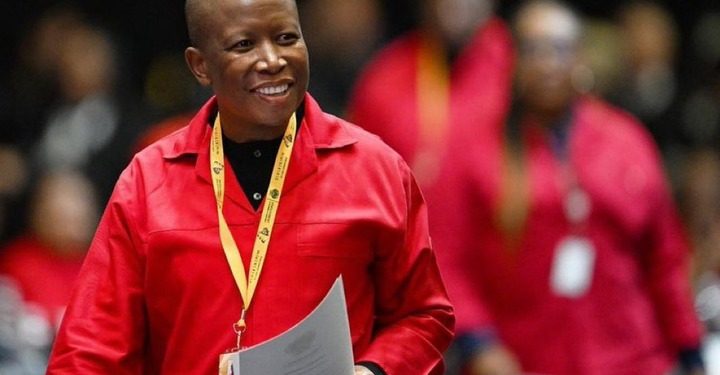EFF leader Julius Malema has fiercely criticized President Cyril Ramaphosa’s State of the Nation Address (SONA), describing it as a speech full of “empty promises” with no concrete strategy to combat South Africa’s soaring unemployment. Malema condemned the lack of tangible solutions, accusing Ramaphosa of offering vague assurances rather than actionable plans to address the country’s economic challenges.
Speaking at a press briefing after the address, Malema highlighted the absence of a clear roadmap for job creation. “Once again, we heard words, but we did not hear plans,” he said. “The people of this country need jobs, but what they got were vague promises with no clear path toward creating sustainable employment.”
The EFF leader took aim at Ramaphosa’s emphasis on ambitious economic targets and investment pledges, saying these plans seemed disconnected from the lived realities of ordinary South Africans. He criticized the government’s lack of urgency and failure to take responsibility for the worsening unemployment crisis.
“Ramaphosa’s speech is a typical example of political rhetoric, where leaders say what people want to hear without addressing the real issues,” Malema asserted.
Malema reiterated the EFF’s call for a radical overhaul of South Africa’s economic policies, emphasizing the need to prioritize job creation and equitable wealth distribution over reliance on foreign investment. He argued that many of these investments bypass local communities and do little to alleviate poverty or unemployment.
The EFF has long advocated for bold policies to address youth unemployment and economic inequality, proposing state-led industrialization and increased support for small businesses as part of its vision for economic transformation.
As South Africans digest the president’s address, Malema’s sharp critique reflects growing frustration with the government’s perceived inaction. With unemployment at record highs, the urgency for practical solutions has never been greater. For many, the question remains whether Ramaphosa’s administration can turn its promises into real progress—or if it will continue to fall short of expectations.






















